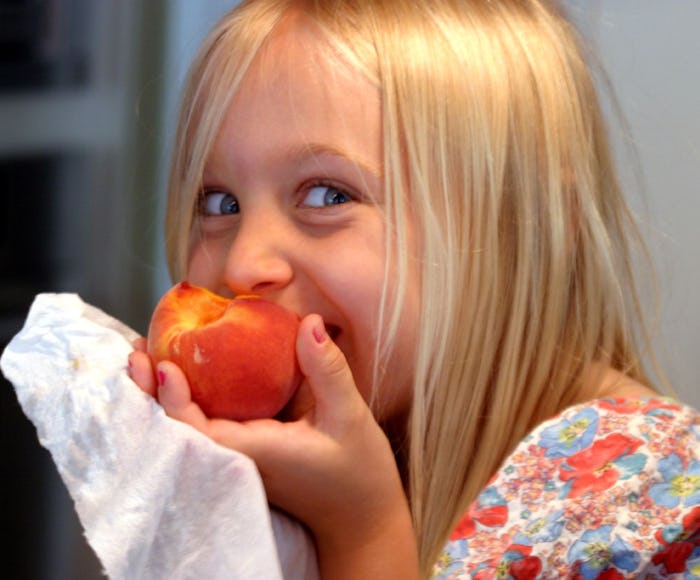Life

7 Ways To Raise A Healthy Child Without Fat Shaming Them
My husband and I raised two kids and are still raising the youngest two, and although we've made some mistakes, I'm happy to say that failing to provide a healthy lifestyle wasn't one of them. As our food production becomes more complicated and secretive, one thing remains easy to understand: clean, chemical-free, whole foods provide the best way toward glowing health for our kids. There are ways to raise a healthy child without fat shaming them.
We all want our kids to be healthy, to have energy and a strong immune system. But in a world where body shamers are everywhere, it's difficult to stay on the right side of the line between instilling healthy habits and accidentally fat-shaming your child. It's important to keep the focus on health and off of appearance by choosing words like "health" and "energy" and phrases like "full of life" and "strong body." When you talk about health with your kiddos, how they look doesn't ever have to come up. It's about how they feel and what they can accomplish in life when they eat healthy foods. If your child likes karate, focus on how eating healthy means a stronger kick. f your child loves Pokemon cards, let them know they'll have stronger trading skills if their brains are sharp from eating well.
Take a look at how you can help your kids to understand, value, and embody healthy food choices, while learning to love the bodies they were given.
1Educate Children On Whole Foods
Most kids won't know what whole foods are or why they are essential for good health unless someone teaches them. Explaining to them that whole foods are as close to their natural form as possible. When we eat whole foods, we are eating what biology intended for us to eat; the optimal foods for health. To help your kids decipher between whole foods and less-than-whole foods, consider downloading one of these nutrition apps from the American Academy of Nutrition and Dietetics.
2Take Your Child Grocery Shopping and Discuss Your Choices
When kids are involved in grocery shopping, they can learn a lot more than what aisle has the chocolate popsicles. Grocery shopping with your child is the perfect time to talk about what foods you are buying, what those foods do for your body, and how you might cook or serve them. Grocery shopping with your child is the perfect time to talk about what foods you are buying, what those foods do for your body, and how you might cook or serve them.
3Cook With Your Child
I'm not the best cook, but between my husband and I, our family eats homemade meals six nights a week. We include our kids in this process from the time they are little: cracking eggs, using the beaters, mixing salad ingredients, pouring olive oil. It's not always neat, but it is teaching them good eating habits as well as how to prepare food.
4Don't Underestimate What They Can Learn
When it comes to my own eating habits, I try to explain why I'm eating certain items. I explain that oranges are full of vitamin C and make your body strong, and too much sugar makes it hard for your body to work right. In sharing this info with my children about my own choices, they understand the connection between foods and feelings and make better decisions when it comes time to eat.
5Eating Good Means Feeling Better
Teaching your kids that eating good is a way to feel good is a powerful message, as emotional health is linked to how you eat. When you eat healthy foods, your brain and body have the best shot at making us feel content, clear-minded and focused.
6Make Movement Part Of Daily Life
The word exercise makes some people cringe, but really it's just about moving your body for a period of time every day. My family goes on hikes, takes walks around our neighborhood, has dance parties. Movement is about the joy of life and embracing our physical bodies, an attitude that brings body self-esteem to our children.
7Expose Them To Positive, Health-Focused Role Models
Chef Jamie Oliver is famous for his impassioned pleas to feed children healthy foods and educate them on nutrition. Find a few of his You-Tube video and watch it with your kids. By exposing them to these sort of role models, you're giving them another person to turn to for health advice.
Images: Bruce Tutten/Flickr; Giphy (7)